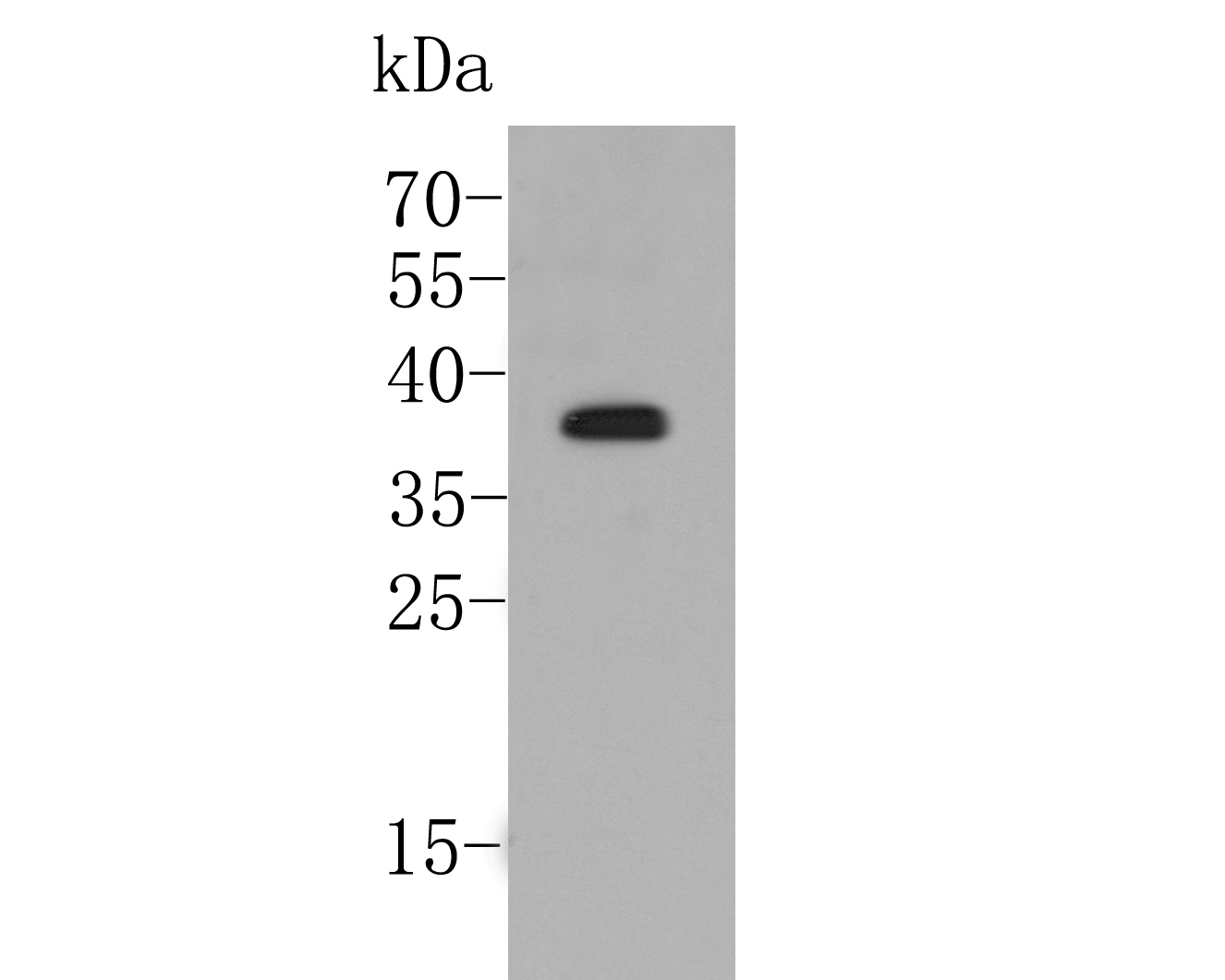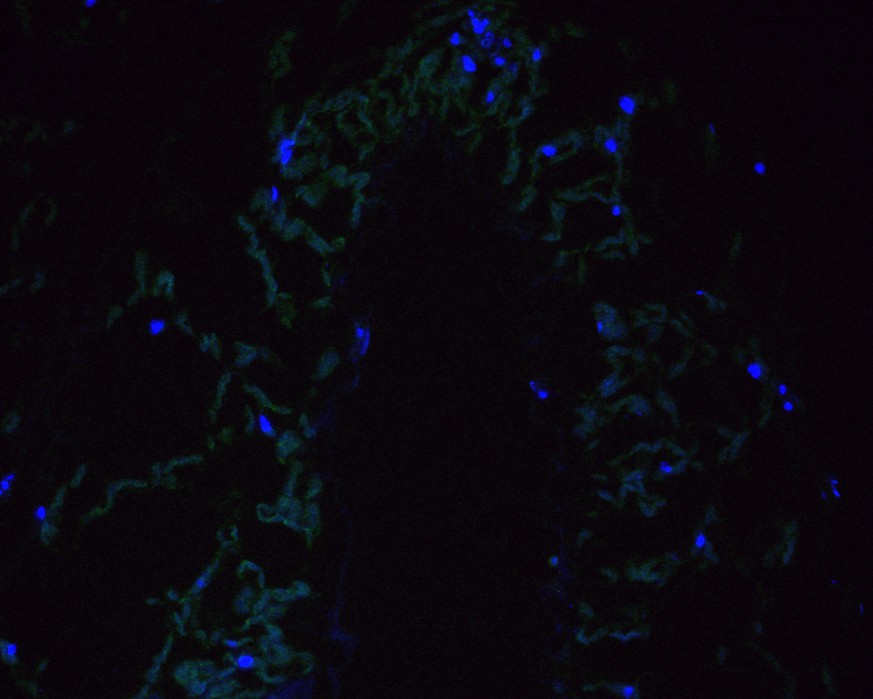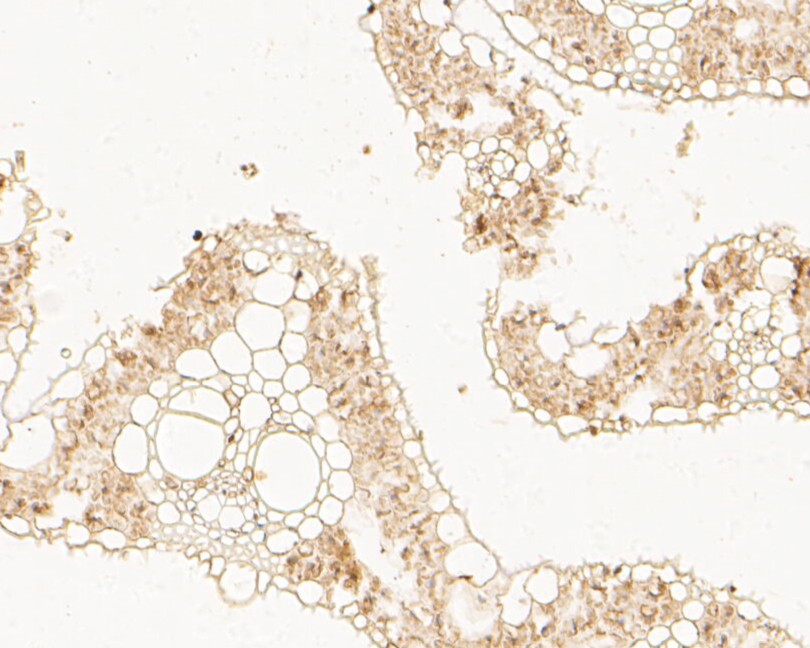-
Product Name
Anti-LOC4331983 antibody
- Documents
-
Description
Rabbit polyclonal antibody to LOC4331983
-
Tested applications
WB, IHC-P, IF
-
Species reactivity
Rice
-
Alternative names
D14 antibody; D88 antibody; HTD2 antibody
-
Isotype
Rabbit IgG
-
Preparation
This antigen of this antibody was synthetic peptide within n-terminal rice d14.
-
Clonality
Polyclonal
-
Formulation
Liquid, 1*TBS (pH7.4), 0.2% BSA, 50% Glycerol. Preservative: 0.05% Sodium Azide.
-
Storage instructions
Store at +4℃ after thawing. Aliquot store at -20℃. Avoid repeated freeze / thaw cycles.
-
Applications
WB: 1:500-1:1000
IHC-P: 1:50-1:200
IF: 1:50-1:200
-
Validations

Fig1:; Western blot analysis of D14 on rice tissue lysate. Proteins were transferred to a PVDF membrane and blocked with 5% BSA in PBS for 1 hour at room temperature. The primary antibody ( 1/500) was used in 5% BSA at room temperature for 2 hours. Goat Anti-Rabbit IgG - HRP Secondary Antibody (HA1001) at 1:5,000 dilution was used for 1 hour at room temperature.

Fig2:; Immunofluorescence staining of paraffin- embedded rice tissue using anti-D14 rabbit polyclonal antibody.The section was pre-treated using heat mediated antigen retrieval with Tris-EDTA buffer (pH 9.0) for 20 minutes.(sodium citrate buffer (pH 6.0) for 20 mins.) The tissues were blocked in 10% negative goat serum for 1 hour at room temperature, washed with PBS, and then probed with the antibody () at 1/100 dilution for 10 hours at 4℃ and detected using Alexa Fluor™ 488 conjugate-Goat anti-Rabbit IgG (H+L) Secondary Antibody at a dilution of 1:500 for 1 hour at room temperature.

Fig3:; Immunohistochemical analysis of paraffin-embedded rice tissue using anti-D14 antibody. The section was pre-treated using heat mediated antigen retrieval with Tris-EDTA buffer (pH 8.0-8.4) for 20 minutes.The tissues were blocked in 5% BSA for 30 minutes at room temperature, washed with ddH; 2; O and PBS, and then probed with the antibody () at 1/100 dilution, for 30 minutes at room temperature and detected using an HRP conjugated compact polymer system. DAB was used as the chrogen. Counter stained with hematoxylin and mounted with DPX.
- Background
-
References
- Liu W.et.al.Identification and characterization of HTD2: a novel gene negatively regulating tiller bud outgrowth in rice.Planta 230:649-658(2009).
Related Products / Services
Please note: All products are "FOR RESEARCH USE ONLY AND ARE NOT INTENDED FOR DIAGNOSTIC OR THERAPEUTIC USE"
